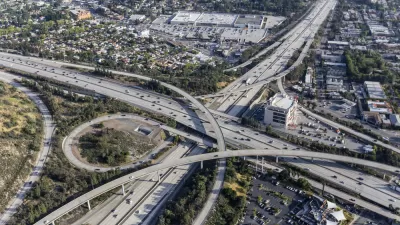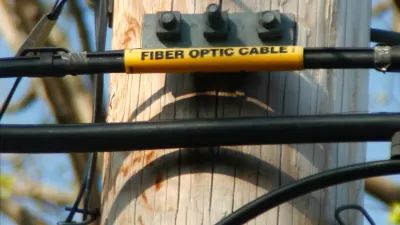Michael Coren examines the influence of internet connection speeds on economic production and the reasons why he believes "broadband will become the interstate highways of the 21st century."
Coren explores the findings reported in a new study, conducted jointly by Ericsson, Arthur D. Little and Chalmers University of Technology in 33 OECD countries, that sought to quantify the isolated impact of broadband speed.
The results of the study showed that doubling the broadband speed for an economy increases GDP by 0.3%. While that may not seem like much at first glance, it corresponds to more than one seventh of the average annual OECD growth rate in the last decade. Furthermore, the study reports that for every 10 percentage point increase in broadband penetration, GDP increases by 1 percent.
According to Coren, broadband will significantly change the ways in which a whole host of sectors do business, with an impact similar to that of the interstate highway system, providing "infrastructure that radically improves the exchange of valuable goods (or services and ideas) leading to explosive economic growth over time."
"As broadband becomes ubiquitous, and faster, everything from retail to government services may find ways to reinvent itself, especially in knowledge-based sectors where such speed and efficiency can enhance competitiveness."
FULL STORY: Want To Boost The Economy? Boost Internet Speeds

Maui's Vacation Rental Debate Turns Ugly
Verbal attacks, misinformation campaigns and fistfights plague a high-stakes debate to convert thousands of vacation rentals into long-term housing.

Planetizen Federal Action Tracker
A weekly monitor of how Trump’s orders and actions are impacting planners and planning in America.

In Urban Planning, AI Prompting Could be the New Design Thinking
Creativity has long been key to great urban design. What if we see AI as our new creative partner?

King County Supportive Housing Program Offers Hope for Unhoused Residents
The county is taking a ‘Housing First’ approach that prioritizes getting people into housing, then offering wraparound supportive services.

Researchers Use AI to Get Clearer Picture of US Housing
Analysts are using artificial intelligence to supercharge their research by allowing them to comb through data faster. Though these AI tools can be error prone, they save time and housing researchers are optimistic about the future.

Making Shared Micromobility More Inclusive
Cities and shared mobility system operators can do more to include people with disabilities in planning and operations, per a new report.
Urban Design for Planners 1: Software Tools
This six-course series explores essential urban design concepts using open source software and equips planners with the tools they need to participate fully in the urban design process.
Planning for Universal Design
Learn the tools for implementing Universal Design in planning regulations.
planning NEXT
Appalachian Highlands Housing Partners
Mpact (founded as Rail~Volution)
City of Camden Redevelopment Agency
City of Astoria
City of Portland
City of Laramie




























